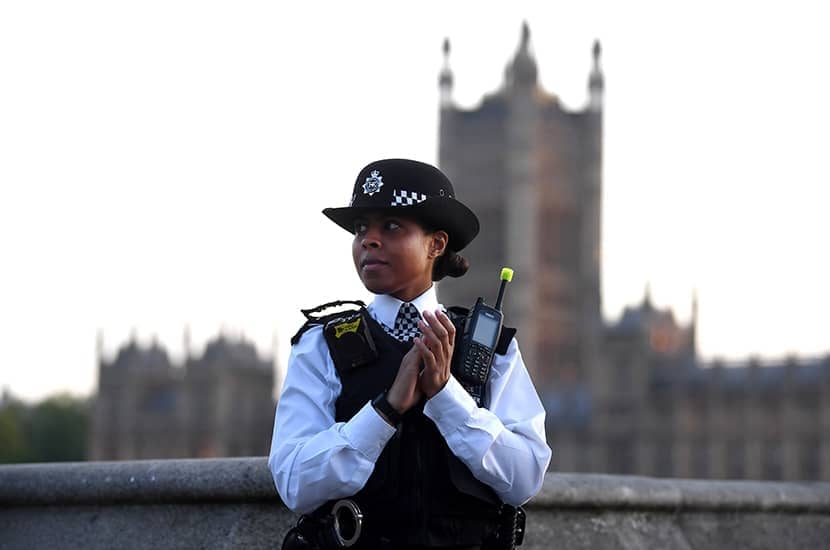A health-care disaster
Sir: Kate Andrews’s piece on who really controls the NHS (‘Waiting game’, 12 February) gives us a flavour of how things have come to this: an unaccountable health service with a government attached. We are about to enter a new phase, with additional taxation in the form of increased NI based on promises which are already looking hollow — waiting lists will continue to rise. There is no sign that the 100,000 key workers who are needed are going to be found any time soon.
The truth of the matter is that the people have been fed a number of lies for decades: that health care in the UK is ‘free’ and available to all; that we have the best health-care system in the world; and that the provision of health care is best organised through a state monopoly financed by the taxpayer with politicians in charge.
While there are many examples of great work being done by brilliant individuals within the NHS, there are also numerous examples of disastrous care. What is abundantly clear is that personal continuity of care is rarely on offer, and the ordinary citizen is having either to fight the system to get the right attention or put up with a very long — and growing — waiting list. Until we elect politicians who have the guts to admit that it is not possible to continue in this way, we will continue to sleepwalk towards disaster.
Neville Abraham
London SW3
Police and thank yous
Sir: I had sympathy with Kevin Hurley’s comments on the vilification of the police (‘Cop out’, 12 February). I served as a magistrate for 16 years in four towns and two counties and learned great respect for all involved in the justice system, not least for the police. A characteristic almost unique to the work of the police is that they spend practically all of their working time dealing with unhappy people. Victims of crime often have unrealistic expectations about the resources that can be devoted to identifying the culprits who damaged their cars or broke their windows. And the days when criminals commented ‘It’s a fair cop, guv, I’ll come quietly’ went out with Dixon of Dock Green. A more likely reaction now is violence or foul language followed by a ‘No comment’ interview. Of course there are bad cops as there are bad teachers, nurses and taxi drivers. But the police face daily challenges unknown to most of the people they serve.
Stephen Halliday
Cambridge
PPE windfalls
Sir: I generally disagree with the concept of opportunistic and retrospective tax grabs, such as potential windfall taxes on the oil and gas majors discussed in Martin Vander Weyer’s column (Any other business, 12 February). As an exception however, I would very much support a windfall tax on the reportedly excessive profits made by the owners of certain PPE suppliers during the past two years at our collective expense. I’m sure HMRC could set up a suitable ‘VIP lane’ for them to ensure prompt payment.
Tim Pick
Radlett, Hertfordshire
Dipping the wafer
Sir: Ysenda Maxtone Graham (‘Grapes of wrath’, 12 February) raises a good point about the mildly unfulfilling aspect of an ‘incomplete’ communion. A wafer without wine feels a little like the waiter clearing one’s table before the sommelier’s arrival.
However, the alternatives proposed by others seem somewhat over-engineered. In our benefice (certainly not uniquely), the vicar dips the wafer briefly into the chalice as it is proffered. Thanks to the sturdy absorbency of a cardboard-like communion wafer, it can then be consumed without risking either viral transfer or a single scarlet droplet falling upon a lapel. One may return to the pew spiritually nourished in full.
On this issue and in this Covid-sensitive era, the guidance of scientists and politicians can be complemented further by the liturgically rhetorical question: ‘What would Jesus do?’
Richard Kay
Piddletrenthide, Dorset
Sound and vision
Sir: Anthony Whitehead (‘Classified information’, 29 January) mentions an intriguing classified ad about ‘a lady who offers to paint your portrait’ based only on voice. The artist is Elenor Hellis and I was one of her sitters — or voices. While the portrait does not look like me, it uncannily captures me in other singular ways. I’ve shown it to friends and they agree.
David Greenslade
Cefn Cribwr, Bridgend
Change needed
Sir: The letter suggesting the Church of England should support the use of cash (Letters, 5 February) caught my eye as a good idea because, as a pub owner, we have various charity boxes on our bar. You can imagine how reduced their takings are now, with card payments almost ubiquitous. A handful of change reaches the charities that credit cards won’t.
Alan Piper
The Sun Hotel, Coniston, Cumbria
Daft about daffs
Sir: Gus Carter writes that the daffodil has become ‘something of a cult plant’ (‘Notes on…’, 2 February). Daffodil mania was blossoming more than a century ago, particularly in this Hampshire village. A clergyman, George Engleheart, bred several varieties in the 1890s which fetched staggering prices. Three ‘Will Scarlett’ bulbs with a deep scarlet corona, for example, were sold for £100 in 1898 — the equivalent of several thousand pounds each in today’s values. There were many other breeders like Engleheart up and down the country.
Bruce Parker
Appleshaw, Hampshire






Comments